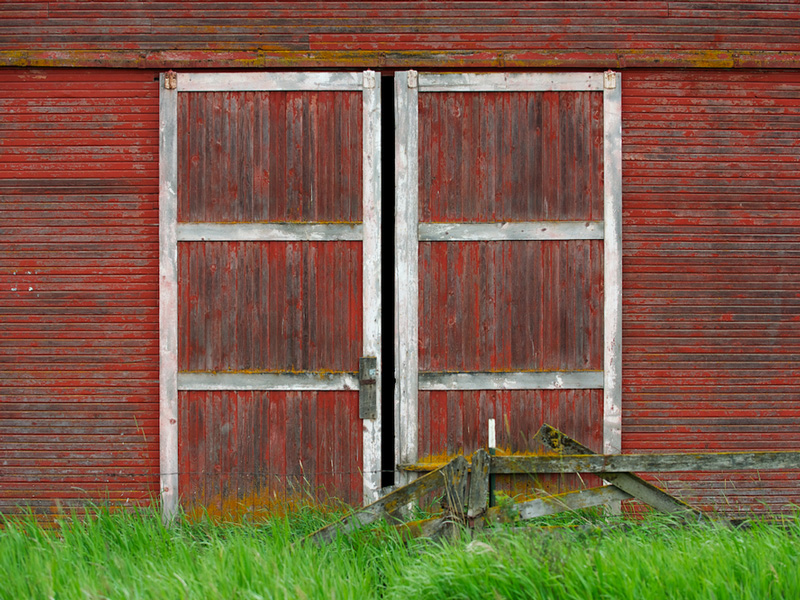The Last Things I’ll Remember
(Joyce Sutphen)
The partly open hay barn door, white frame around the darkness,
the broken board, small enough for a child
to slip through.
Walking in the cornfields in late July, green tassels overhead,
the slap of flat leaves as we pass, silent
and invisible from any road.
Hollyhocks leaning against the stucco house, peonies heavy
as fruit, drooping their deep heads
on the dog house roof.
Lilac bushes between the lawn and the woods,
a tractor shifting from one gear into
the next, the throttle opened,
the smell of cut hay, rain coming across the river,
the drone of the hammer mill,
milk machines at dawn.
("The Last Things I'll Remember" by Joyce Sutphen from First Words. © Red Dragonfly Press, 2010.)
Even though I have spent limited time in farm country, the images in Joyce Sutphen’s evocative poem summon up, in my mind’s eye, a quintessential summer landscape. And the title of the poem intrigues me no less than its content; what if it were in our power to decide what things we’ll remember last, as our lives draw to a close? What would we choose to remember?
The approach of Independence Day engenders a specific memory. July 4th will forever be linked into my mind with my first awareness that we do not live forever. On that day, in 1960, I was a seven-year-old. To celebrate the 4th, my parents had taken me to my favorite restaurant, Hamburger Junction, a diner-type establishment whose attraction was a model railroad that ran from the kitchen and down the entire length of a long counter. Having placed your order, you’d await the arrival, on a flatbed car that would stop right in front of you, of your hamburger. A tiny flag-waving gorilla, hanging out of the back of the caboose car, was the icing-on-the-cake of that dining experience!
Returning home that evening, I busied myself with what ever I tended to do on a summer’s eve at age seven. It was when I heard an unusual and disturbing sound that I went to investigate; it was the sound of my mother weeping. She had just received a phone-call informing her of the sudden death of her own mother, in Virginia, that afternoon. I had never seen either of my parents express that kind of grief and it was bewildering and unsettling, my initiation into knowledge of mortality and irretrievable loss.
William Gibson has written, “Time moves in one direction, memory in another.” The memories we claim, and those that claim us, define us in the end.
Reb Elias



